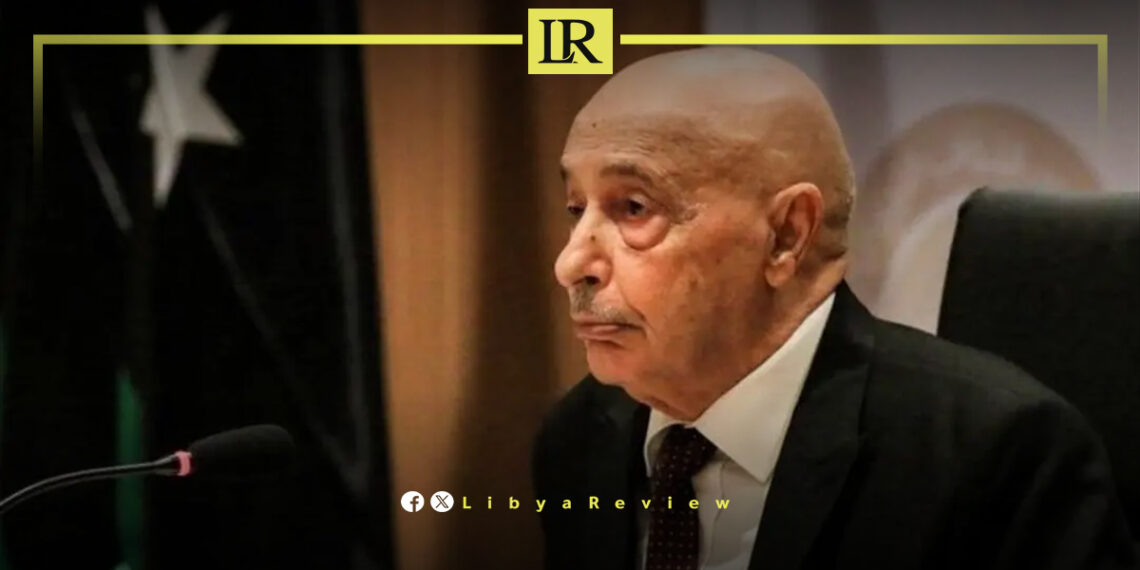On Saturday, Libyan House of Representatives Speaker, Ageela Saleh, declared that the solution to the country’s persistent political deadlock lies in the will of the people, expressed through transparent and fair elections supervised by the United Nations. He stressed that all parties must commit to accepting the election results to pave the way for a stable and unified Libya.
During a discussion with his political team, Saleh reiterated the parliament’s efforts to present a comprehensive vision to resolve the crisis. This vision includes the enactment of laws for electing a president and legislative body, laying the foundation for a unified government that addresses the aspirations of Libyans.
Saleh highlighted the parliament’s neutrality in Libya’s political landscape, emphasizing that it has not aligned with any faction. Instead, the House of Representatives has consistently championed initiatives aimed at fostering national reconciliation and uniting the Libyan people to achieve security, stability, and peace.
He pointed out that while politics has failed to bridge divisions, development and reconstruction can succeed where dialogue has faltered. Saleh praised the tangible improvements made through projects initiated by the Development and Reconstruction Fund, which have enhanced infrastructure and revitalized Libya’s economy. These efforts, he suggested, offer a path to unity and progress.
Saleh reaffirmed his commitment to national reconciliation as a key pillar of Libya’s recovery. He outlined the parliament’s support for transitional justice, a process that includes uncovering the truth, offering reparations, and compensating victims. This approach, he stated, aims to foster an equitable reconciliation that allows Libyans to move beyond past grievances and focus on building a stable future.
He also addressed critics of the National Reconciliation Law, urging them to put the country’s interests above political disagreements. Saleh stressed that the parliament has followed proper legislative processes in developing and debating the law, ensuring it reflects Libya’s broader needs.
Saleh made it clear that the House of Representatives is not a participant in international conflicts. Instead, it is firmly aligned with the interests of the Libyan people, prioritizing their aspirations for peace, coexistence, and sovereignty. He called for unity, collective action, and a renewed focus on conducting free elections, which he views as the ultimate solution to Libya’s challenges.
In his closing remarks, Saleh underlined that Libya’s future cannot be determined by external actors. He called for a purely Libyan solution, driven by the collective will of the people. He urged all stakeholders to focus on fostering national reconciliation, conducting elections, and building a permanent constitution that empowers Libyans to chart their own course. According to Saleh, a unified effort toward these goals is essential for the nation to achieve stability, prosperity, and peace.


